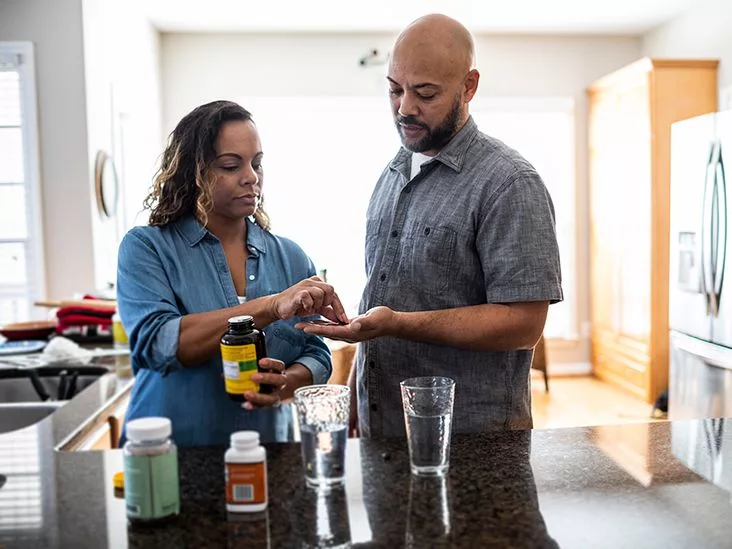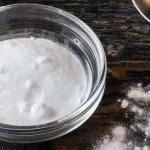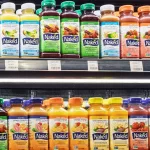Hey friend! If you’ve ever wondered which pills or foods actually help keep your ticker humming along, you’re in the right place. The short answer? A handful of well‑studied vitamins—B6, K2, D, and C—can give your heart a solid boost, while overdoing others like A or E might backfire. Below we’ll unpack the science, share practical tips, and keep the conversation light and friendly, so you can feel confident about the choices you make for your heart.
Why Vitamins Matter
Our bodies are tiny factories, and vitamins are the essential tools that keep the machines running smoothly. When it comes to the cardiovascular system, a few key processes are especially important:
- Inflammation control: Some vitamins act like peacekeepers, calming the fire that can damage arteries.
- Oxidative stress reduction: Antioxidant vitamins mop up rogue free radicals that would otherwise rust your blood vessels.
- Homocysteine regulation: B‑vitamins help convert this amino‑acid from a harmful culprit into a harmless player.
- Blood‑pressure modulation: Vitamin D and potassium‑linked pathways influence how tightly your vessels contract.
According to a 2025 Healthline review, studies consistently show that B6, K2, C, and D are the stand‑out “heart‑healthy vitamins.” That’s why we’ll focus on them first.
Essential Heart Vitamins
Below you’ll find the core vitamins that research points to as the best heart vitamins. Each section answers a specific question you might be asking, and the table at the end gives you a handy cheat‑sheet.
Which vitamin B6 supports my heart?
B6 (pyridoxine) plays a starring role in lowering homocysteine, a molecule that, when elevated, can damage artery walls. A 2023 study showed that participants taking the recommended amount of B6 had a 15% lower risk of stroke compared with those who didn’t according to the research.
How much? The RDA for adults is 1.3 mg per day. Most people stay well below the 100 mg upper limit unless they’re on a high‑dose supplement prescribed by a doctor.
Is vitamin K2 the underrated heart protector?
Most conversation about vitamin K focuses on K1 (the green‑leaf version), but K2 is the hero when it comes to calcium management. A large 2021 analysis of over 50,000 participants found that those with the highest K2 intake were 21% less likely to develop cardiovascular disease according to the Journal of the American Heart Association.
Where to find it? Natto (fermented soy), hard cheeses, egg yolks, and some pâtés are K2 powerhouses. If you’re vegetarian, look for K2‑fortified plant milks.
How does vitamin D affect blood pressure?
Vitamin D does more than keep your bones sturdy. Low levels (<20 ng/mL) are linked to higher blood pressure and stiffer arteries. The same Healthline article notes that supplementing 800–2000 IU daily (after checking your blood level) can improve vascular function, especially in people who are deficient.
Testing tip: A simple 25‑OH‑D blood test tells you whether you need a boost. Talk to your doctor before loading up on high‑dose D.
What role does vitamin C play in vessel health?
Vitamin C is the classic antioxidant that protects the lining of blood vessels from oxidative damage. It also aids collagen production, keeping arteries elastic. The Frontiers 2021 review highlighted its double‑duty as both an antioxidant and a co‑factor for enzymes that detoxify harmful substances in the bloodstream.
Best sources: Citrus fruits, strawberries, bell peppers, and broccoli. If you prefer a supplement, look for “ascorbic acid” or “buffered vitamin C” to reduce stomach upset.
Should I add vitamin E or A?
Here’s the nuance: while moderate amounts of vitamin E and A from whole foods are fine, high‑dose supplements have mixed, sometimes negative, outcomes. Some trials even suggested that beta‑carotene (a vitamin A precursor) could increase heart‑disease mortality according to Healthline. The safest route is to eat orange and yellow vegetables, eggs, and dairy rather than popping large pills.
Quick Reference Table
| Vitamin | Primary Heart Benefit | RDA / Typical Dose | Top Food Sources | When a Supplement Helps |
|---|---|---|---|---|
| B6 (Pyridoxine) | Lowers homocysteine → protects arteries | 1.3 mg | Bananas, chickpeas, salmon | Diagnosed deficiency or high homocysteine |
| K2 (Menaquinone) | Guides calcium away from arteries | 90–120 µg | Natto, hard cheese, egg yolk | Low dietary intake, especially vegans |
| Vitamin D | Improves blood‑pressure regulation | 800–2000 IU (if deficient) | Fatty fish, fortified milk, sunlight | Confirmed deficiency (<20 ng/mL) |
| Vitamin C | Antioxidant + collagen for vessel elasticity | 75–90 mg | Citrus, strawberries, bell peppers | Increased oxidative stress or poor diet |
Choosing Right Dosage
Even a “good” vitamin can become a problem if you over‑dose. Here’s a quick guide to keep you on the safe side.
Water‑soluble vs. Fat‑soluble
Water‑soluble vitamins (B‑complex, C) dissolve in water and excess is usually flushed out in urine, so toxicity is rare but still possible with massive doses. Fat‑soluble vitamins (A, D, E, K) sit in your body’s fat stores, meaning they can accumulate and cause issues if you take too much.
Timing Matters
- B‑vitamins: Take with breakfast—energy‑boosting for the day.
- Vitamin K2: Best with a fat‑containing meal to aid absorption.
- Vitamin D: Morning or midday with some healthy fat (avocado, nuts).
- Vitamin C: Split doses (e.g., 500 mg twice a day) to enhance absorption.
Quality Markers
Look for third‑party testing seals such as USP, NSF, or ConsumerLab (see a recent supplement analysis). Those symbols tell you the product contains what it says and is free from harmful contaminants.
Vitamins to Avoid
Not every vitamin is a superhero for the heart—some can be a bit of a villain when taken in excess.
High‑dose Vitamin A & Beta‑Carotene
Large amounts of beta‑carotene supplements have been linked to higher heart‑disease mortality in several trials. The safest approach is to stick with foods like carrots, sweet potatoes, and leafy greens for your A intake.
Megadose Vitamin E
While vitamin E is an antioxidant, trials with doses >400 IU showed no cardiovascular benefit and even a slight increase in bleeding risk. If you enjoy nuts and seeds, you’re already getting a healthy amount.
Excess B‑Complex
Although B‑vitamins are water‑soluble, mega‑doses (e.g., 500 mg of B6) can cause nerve issues over time. Stick to the RDA unless a doctor advises otherwise.
Red‑Flag Checklist
- Chest discomfort after starting a new high‑dose vitamin.
- Unexplained bruising or prolonged bleeding.
- Persistent tingling in hands/feet (possible B6 toxicity).
- Sudden spikes in blood pressure despite medication.
If any of these symptoms appear, pause the supplement and talk to a healthcare professional.
Food First Strategy
Supplements are great “insurance,” but whole foods bring a bundle of nutrients, fiber, and phytochemicals that work synergistically. Let’s design a simple 3‑day heart‑friendly menu that hits all the vitamins we’ve discussed.
Day 1
- Breakfast: Greek yogurt with strawberries, a sprinkle of chia seeds, and a glass of fortified orange juice (vitamin D & C).
- Lunch: Spinach and kale salad topped with grilled salmon (K2, D) and a lemon‑olive‑oil dressing.
- Dinner: Stir‑fried chickpeas, bell peppers, and broccoli over brown rice – a B‑vitamin powerhouse.
Day 2
- Breakfast: Oatmeal cooked with fortified soy milk, sliced banana, and a spoonful of almond butter.
- Snack: A handful of roasted pumpkin seeds (vitamin E source).
- Lunch: Turkey wrap with avocado (healthy fat for vitamin K2 absorption) and mixed greens.
- Dinner: Baked cod with a side of roasted carrots and quinoa.
Day 3
- Breakfast: Smoothie: kale, pineapple, orange, and a scoop of whey protein (adds B‑vitamins).
- Lunch: Lentil soup with a dollop of plain Greek yogurt.
- Dinner: Egg‑based frittata with mushrooms, tomatoes, and a sprinkle of cheese (K2, D, B12).
Notice how each meal naturally contains the vitamins we highlighted—no need for a busy‑workday pill‑popping marathon.
Smart Supplement Stacking
If you do need pills, consider safe pairings:
- B‑complex + Vitamin D: Supports both homocysteine control and blood‑pressure regulation.
- K2 + Magnesium: Magnesium helps convert vitamin K2 into its active form.
- Vitamin C + Iron‑rich foods: Vitamin C dramatically improves iron absorption, which indirectly benefits heart health.
Putting It All Together
Let’s recap the essentials in a friendly checklist:
- Focus on B6, K2, D, and C as the core heart‑healthy vitamins.
- Avoid megadoses of vitamin A, E, and isolated beta‑carotene unless medically directed.
- Prefer food sources first; supplement only to fill verified gaps.
- Check blood levels (especially for D and B‑vitamins) before starting high‑dose regimens.
- Choose products with reputable third‑party testing.
Remember, your heart is a living, breathing organ that thrives on balance. By giving it the right mix of nutrients, you’re not just preventing disease—you’re nurturing a stronger, more resilient you.
Conclusion
In a nutshell, the best vitamins for heart health are those backed by solid research—B6, K2, D, and C—while being mindful of the risks associated with excessive A, E, or beta‑carotene. Pair these nutrients with a diet rich in colorful fruits, leafy greens, quality proteins, and healthy fats, and you’ll be giving your cardiovascular system the support it truly deserves.
If you’ve tried any of these vitamins or have a favorite heart‑friendly recipe, I’d love to hear about it in the comments. And if you’re still unsure where to start, consider chatting with a registered dietitian or your primary care provider—they can run a quick blood test and tailor a plan just for you.
Here’s to a happy, healthy heartbeat—one vitamin at a time!


















Leave a Reply
You must be logged in to post a comment.